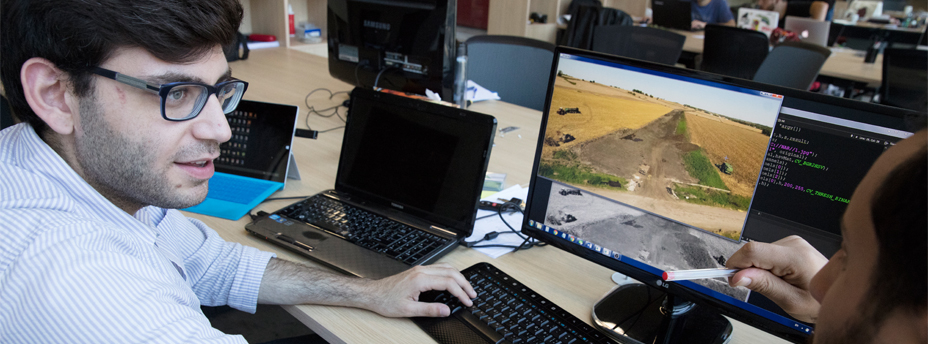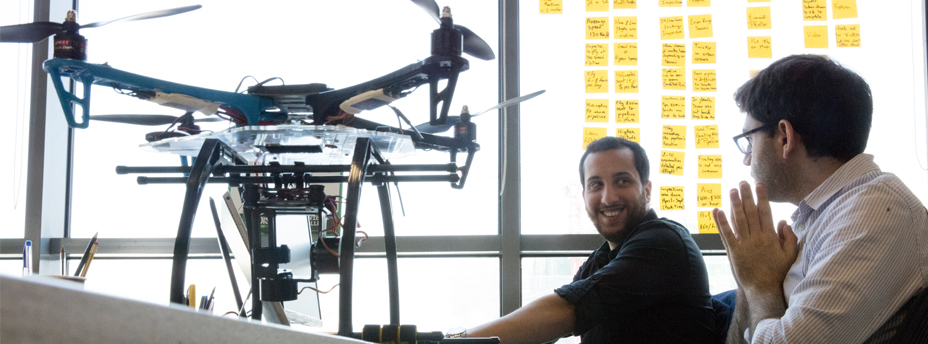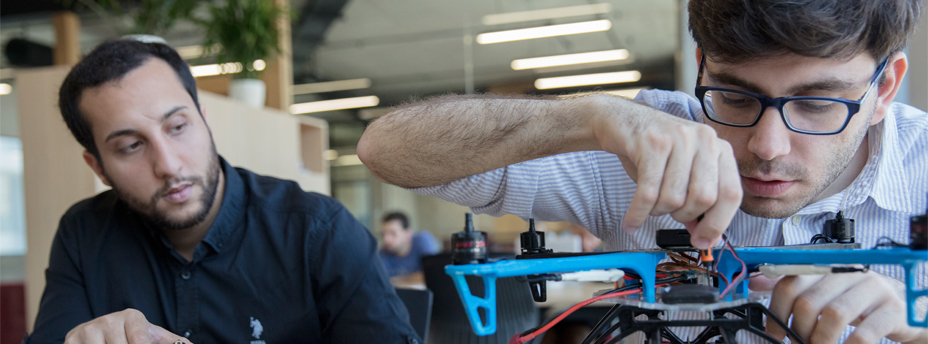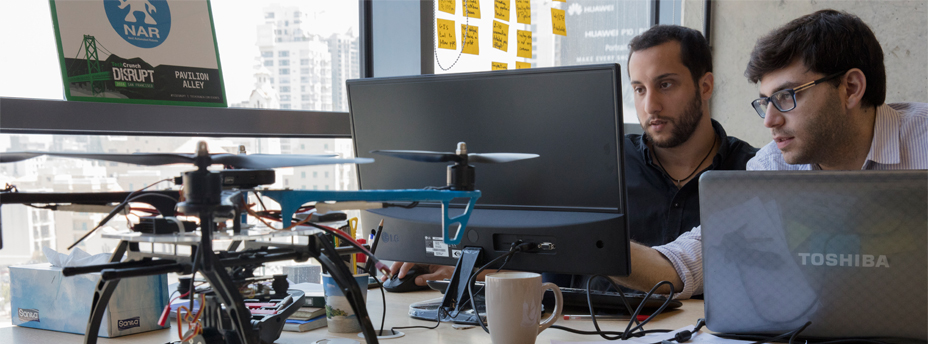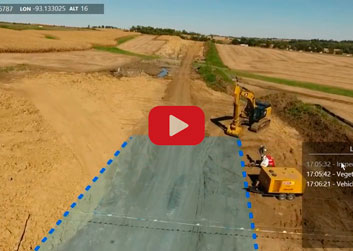Charlie El Khoury and Nicolas Zaatar are the founders of NAR, a start-up building software that helps monitor pipelines. © Dominic Chavez/IFC
| This is the second in a series of stories about entrepreneurs in the Middle East and North Africa who are attempting to create markets and opportunities in the region. IFC and the World Economic Forum are bringing 100 entrepreneurs to the WEF meeting in Jordan this week. |
 By Andrew Raven, IFC Communications
By Andrew Raven, IFC Communications
It started with a fire.
In May 2014, a massive blaze broke out in a forest next to the Beirut suburb of Baabda, overwhelming fire crews. Local residents, including Charlie El Khoury and Nicolas Zaatar, two computer-science majors at the Lebanese American University, joined the fight.
Residents eventually contained the fire, but the experience made Zaatar think.
He wondered if a drone, especially one that could fly itself, could have helped firefighters track the blaze, predict where it was heading, and stop it much more quickly.
That question led El Khoury and Zaatar to start NAR (Next Automated Robot), a company whose software allows drones to operate autonomously. The pair have grand ambitions for the technology, which El Khoury says can be used to monitor everything from fires, to power lines, to pipelines.
"We don't want to have a solution for only Lebanon," says El Khoury, 24. "We want to create something...with global applications."
He is one of 100 entrepreneurs who are in Jordan this weekend for the World Economic Forum’s Middle East and North Africa conference. WEF and IFC are bringing the entrepreneurs to the three-day meeting.
Showcasing Middle Eastern Entrepreneurship
The WEF gathering will draw attention to the ingenuity of some of the top entrepreneurs in the region, and will also give them a chance to voice some of the challenges that they face.
"I think it is very important to recognize that the Middle East isn’t only about bad news,” says Philippe Le Houérou, IFC’s Chief Executive Officer. “There’s a slew of young entrepreneurs who are emerging, using disruptive technology and other tools. You can see their creativity every day. So I think it is very important for IFC to be in that space to work with them through funding incubators or accelerators or investing in venture-capital funds.”
NAR is among a growing number of start-ups that are popping up across the Middle East and North Africa (MENA). In recent years, increased access to capital has allowed many entrepreneurs to launch businesses. In 2016, the number of venture-capital investments in the region jumped fivefold over the previous year, according to the research arm of Wamda, a start-up accelerator. Last year, investors provided more than $800 million into MENA start-ups, according to Wamda.
While those trends are encouraging, entrepreneurs still face a host of challenges, says Fadi Ghandour, Executive Chairman of Wamda Capital, which invests in start-ups. Red tape makes it hard for businesses to expand and innovate. Founders, facing competition from big companies, have trouble finding talented workers. And despite a surge in venture capital, most entrepreneurs struggle to get seed money.
"You see (innovation) in pockets now, but it's not enough," says Ghandour. Countries that do a better job supporting start-ups are "going to create jobs. They're going to create wealth. Then you will see the 21st century economy at scale."
Relocation Not Required
The co-founders of NAR know well the challenges facing entrepreneurs. For years they operated on a shoestring budget, cobbling together money from accelerators and innovation competitions.
"Every start-up faces a tough road," says El Khoury. "You don't have easy start-ups."
The company now focuses its software application on pipeline monitoring. Its technology can process images from a drone's camera—both regular and infrared types—and determine if a structure is leaking.
El Khoury hopes the technology will help head off environmental catastrophes. But that’s just part of his mission. He wants to turn NAR into a haven for Lebanese engineers who specialize in the complex machine-learning and artificial intelligence that drives NAR's software.
"We want to create an opportunity for people,” he says. “And say to them: 'You don't have to travel abroad (for work) or settle for less exciting jobs (in Lebanon). We want you to join us.’"
Follow the conversation: #IFCmarkets
Also available in: عربي
Published in May 2017
